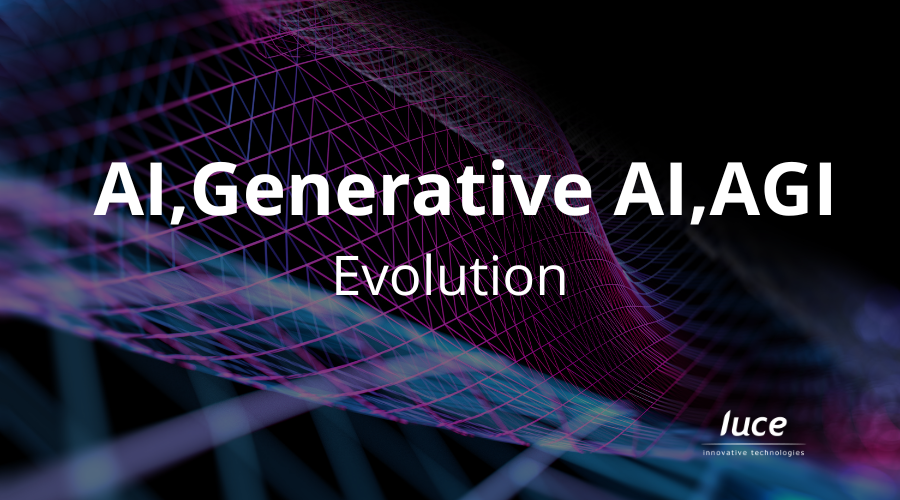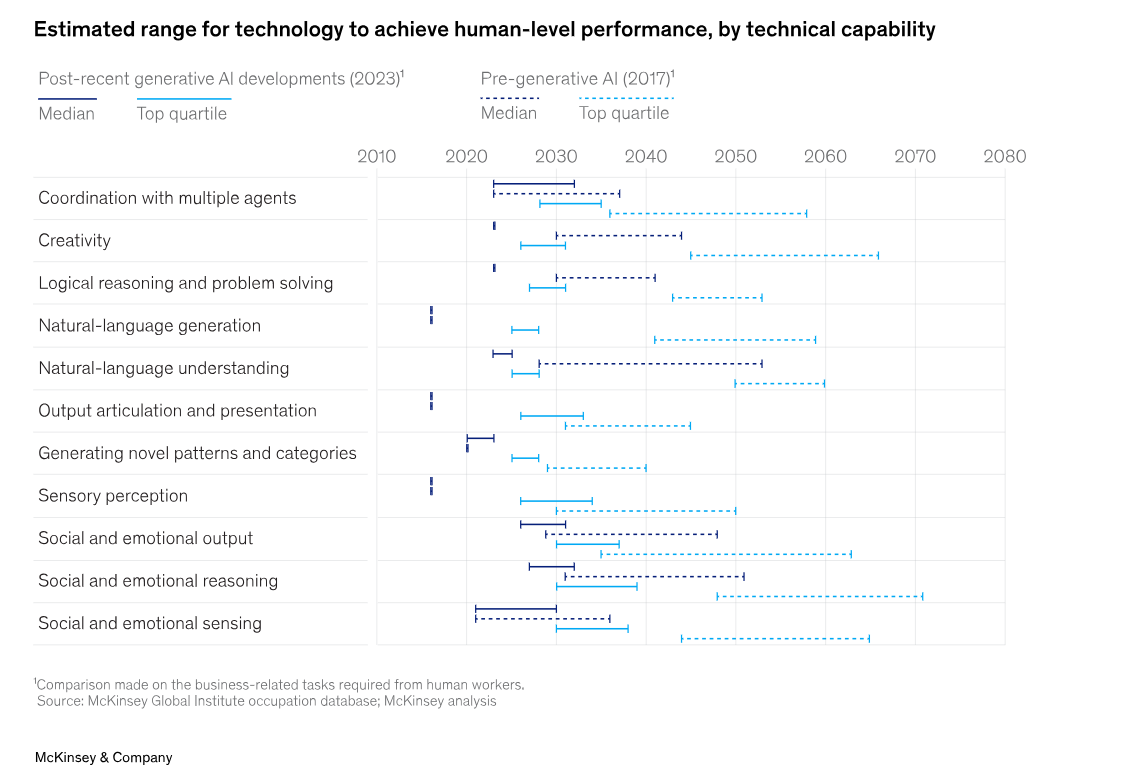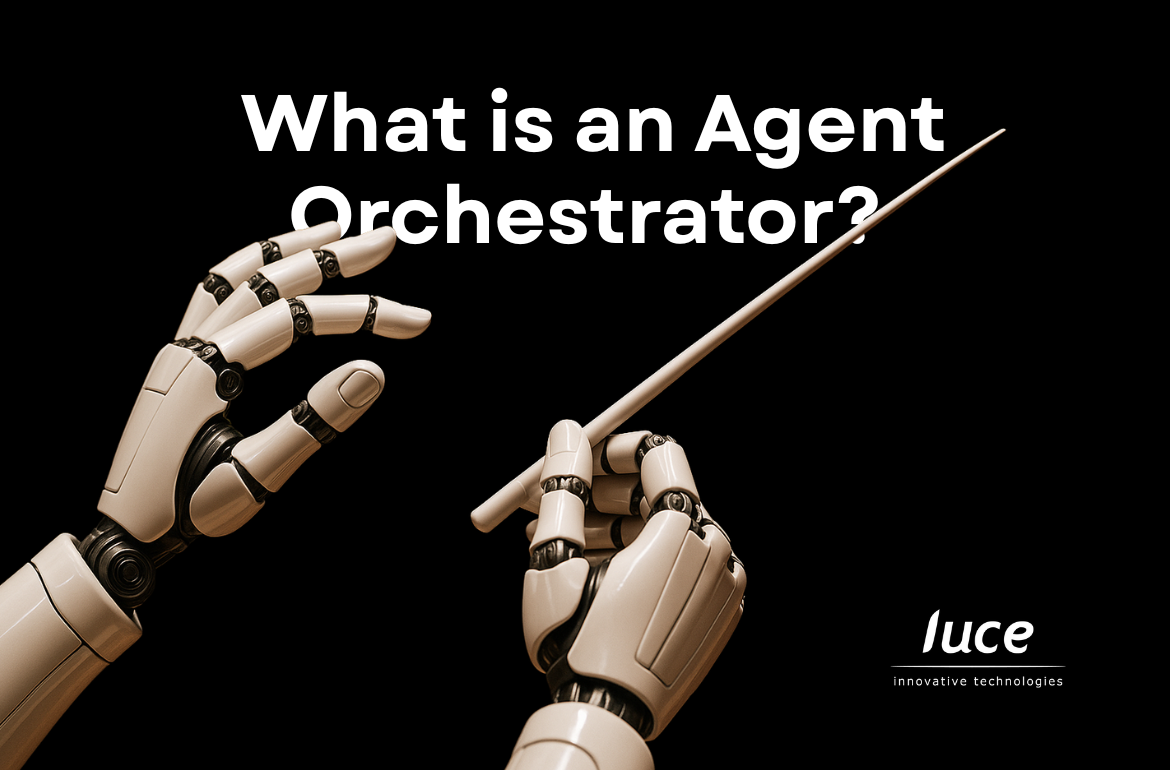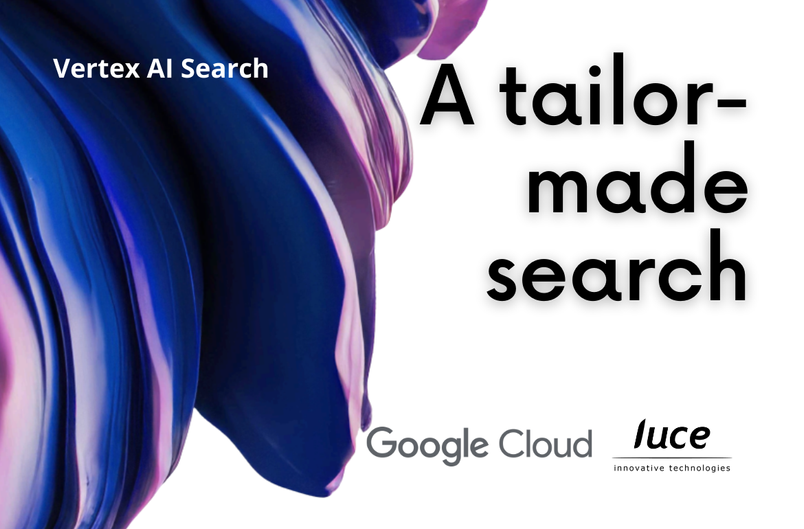
Evolution of Artificial Intelligence: AI, Generative AI and AGI
Any discussion about the future of technology inevitably includes artificial intelligence as a protagonist. AI has become a trend and one of the most controversial topics of the moment, and not only in the field of technology.
From virtual assistants on our phones, to recommendation systems on streaming platforms or photo editing, AI has proven its worth by transforming the way we interact with technology and how it becomes applicable to all sectors and industries, and is even part of people’s everyday lives. However, what makes AI even more intriguing is its constant evolution; the limitations, risks and uses that may violate laws or ethical issues is what has led to the increasing diversification in the field of AI.
Not so long ago, AI focused on specific tasks and programming algorithms to solve specific problems. However, AI is advancing by leaps and bounds, giving rise to several concepts: Artificial Intelligence (AI), Generative Artificial Intelligence (Generative AI) and General Artificial Intelligence (General AI, AGI or ASI).
AI refers to the field in general, generative AI focuses on the creation of new content and general AI aims to develop artificial intelligence systems that are as capable as humans in a variety of cognitive tasks. General AI, also known as AGI (Artificial General Intelligence) or ASI (Artificial Super General Intelligence), is a long-term goal and has not been fully achieved.
We will describe each of these concepts with examples for each case:
Artificial Intelligence(AI):
AI refers to the development of computer algorithms and systems that can perform tasks that generally require human intelligence. These tasks can include natural language processing, computer vision, decision making, problem solving and more.
Examples of common applications of artificial intelligence in everyday life and industry:
- Virtual Assistants: examples such as Siri, Google Assistant and Amazon Alexa use AI to understand and respond to voice commands
- Spam Filters: Email filters use AI to identify and move unwanted emails to the appropriate folder
- Content Recommendations: Streaming platforms like Netflix and YouTube use AI to suggest movies, videos and music based on your viewing history
- Biometric Authentication: Facial and fingerprint recognition on mobile devices use AI to ensure data security
- Chatbots in Customer Service: Companies use AI-powered chatbots to provide quick answers and solutions to frequently asked questions on their websites.
Generative Artificial Intelligence (Generative AI):
Generative AI is a subfield of AI that focuses on creating systems capable of generating new and original content, such as images, text, music, or even video. Generative models use techniques such as generative adversarial neural networks (GANs) or recurrent neural networks to create realistic and compelling content.
Examples of common applications of Generative Artificial Intelligence in everyday life and industry:
- Generative Art Creation: Generative AI can create unique works of art, such as paintings and music, as demonstrated by the “AI Portraits” project or AI-generated musical compositions.
- AI Generated Texts: Automatic generation of textual content for tasks such as summary creation, news writing and creative writing.
- Graphic Design Creation: AI-assisted design tools can help designers generate graphic elements, logos and more.
- Image Super Resolution: Generative AI can improve the quality of images and videos, useful in restoring old photos or improving video quality.
- Advanced Machine Translation: Some translation tools use generative AI to provide more accurate and contextual translations.
General Artificial Intelligence (General AI, AGI or ASI)
General AI refers to the idea of creating a form of artificial intelligence that is as capable as human intelligence in a wide variety of cognitive tasks. This means that general AI would be able to learn and reason in multiple domains, adapt to new situations, understand context and perform a wide range of tasks with a high degree of autonomy. Currently, most AI systems are specialised systems and do not possess the generalised reasoning and learning capabilities associated with human intelligence.
Examples of uses of Artificial General Intelligence in everyday life and industry:
- Autonomous Robots: AGI would enable robots to perform a variety of tasks in changing and unfamiliar environments, such as space exploration or medical care.
- Complex Problem Solving: AGI would be able to tackle complex problems that require logical reasoning and understanding of multiple domains, such as scientific research.
- Natural Conversation: AGI would be able to carry on natural conversations and understand context on a wide range of topics, similar to interacting with a human being.
- Continuous Learning: Unlike specialised AIs, AGI would be able to learn and adapt to new tasks without extensive programming.
- Ethical and Moral Decision Making: AGI would have the ability to understand and make ethical and moral decisions in complex situations, such as ethical dilemmas in healthcare.
However, as we noted at the beginning of this blog, Artificial General Intelligence (AGI) is a long-term evolving concept and has not yet reached its full potential. Although generative AI has proven to be impressive in creating diverse content, AGI represents a level of intelligence and adaptability that is still in the process of development, meaning that we have not yet reached the point where we have an AI with general human-like abilities.
To conclude, we will show how generative AI is evolving by leaps and bounds, according to McKinsey Insights. Experts estimate that the technology could reach human-level performance in some capabilities sooner than previously thought. In some cases, that’s 40 years faster than experts previously thought.
* Source: McKinsey Insights: What’s the future of generative AI? An early view in 15 charts. Aug 2023
Luce IT, your reliable technological innovation company
“Creating happy teams”
The history of Luce is a story of challenges and nonconformity, always solving value challenges using technology and data to accelerate digital transformation in society through our clients.
We have a unique way of doing consulting and projects within a collegial environment creating “Flow” between learning, innovation and proactive project execution.
In Luce we will be the best offering multidisciplinary technological knowledge, through our chapters, generating value in each iteration with our clients, delivering quality and offering capacity and scalability so they can grow with us.
>>Would you work with Luce again?










